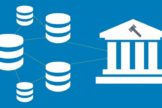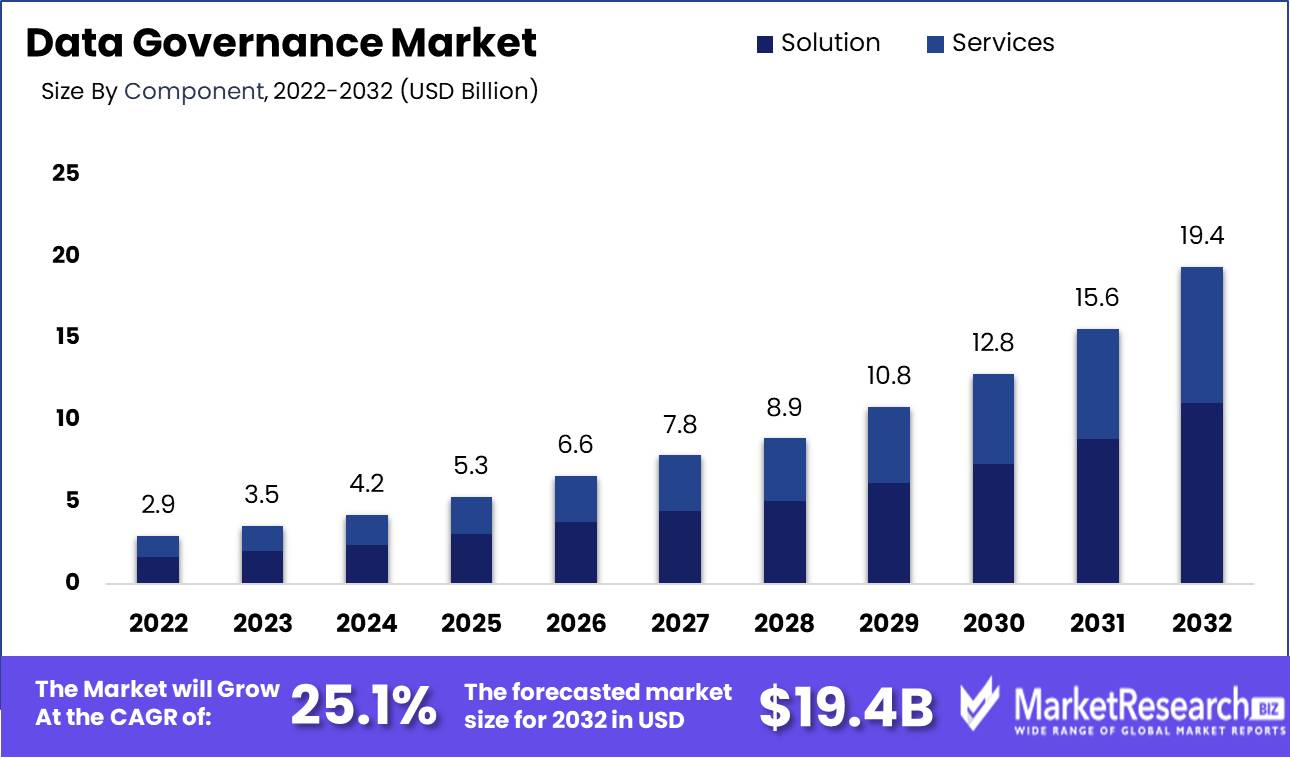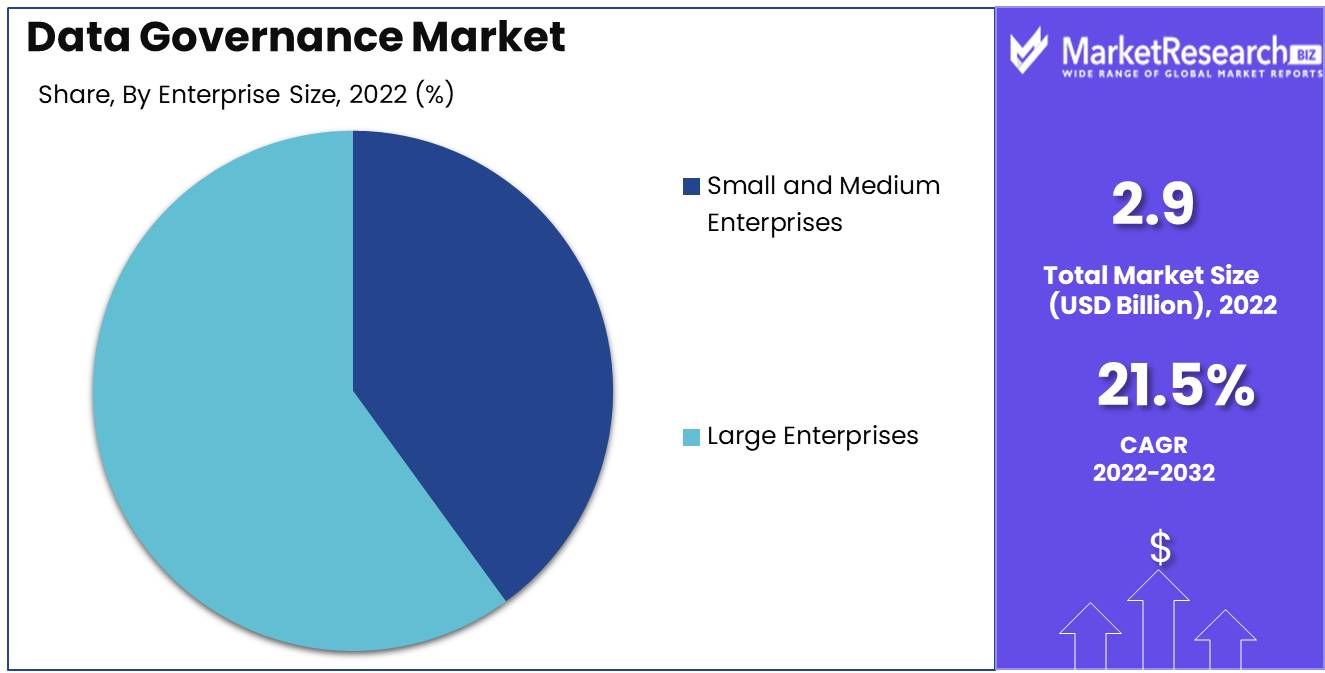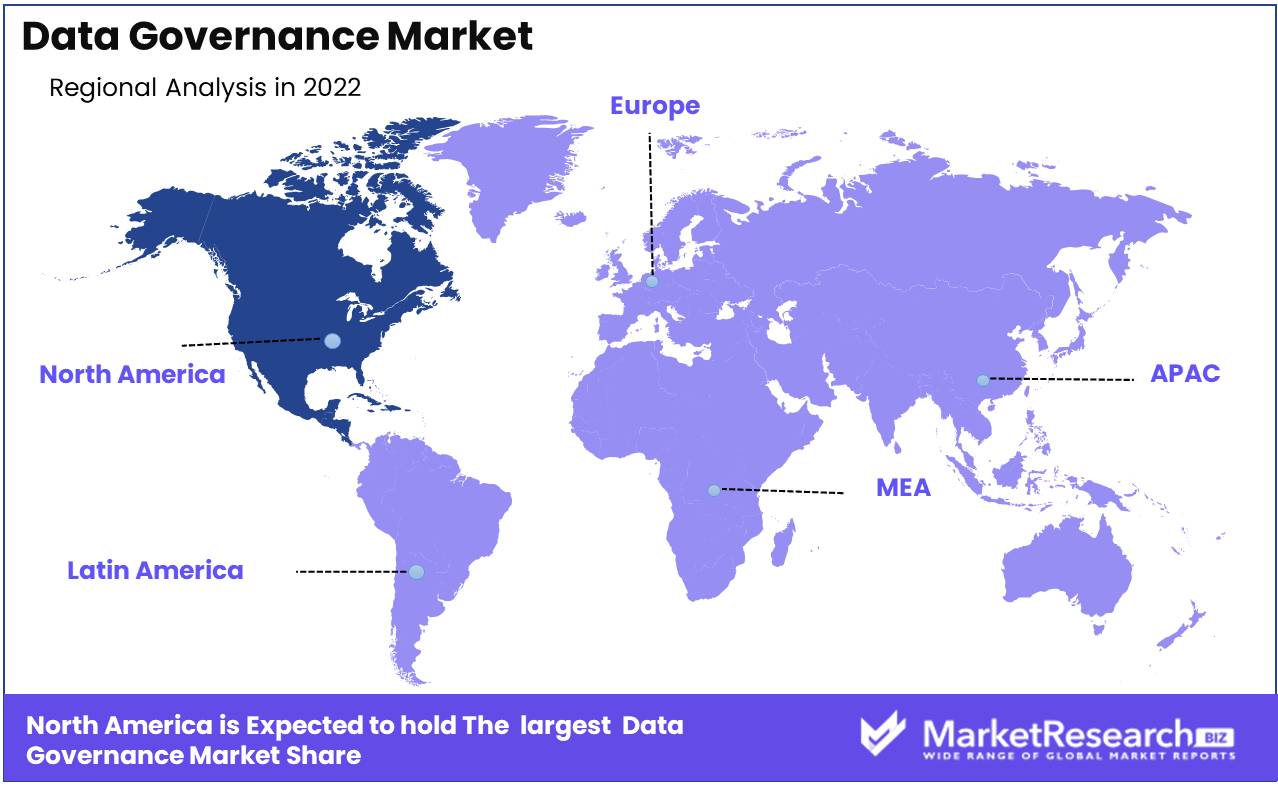
Data Governance Market By Component (Solution, Services), By Deployment Mode (Cloud-based, On-premises), By Enterprise Size (Small and Medium Enterprises, Large Enterprises), By End-Use Industry (IT & Telecommunications, BFSI, E-Commerce & Retail, Other), By Region And Companies - Industry Segment Outlook, Market Assessment, Competition Scenario, Trends, And Forecast 2023-2032
-
7195
-
May 2023
-
155
-
-
This report was compiled by Vishwa Gaul Vishwa is an experienced market research and consulting professional with over 8 years of expertise in the ICT industry, contributing to over 700 reports across telecommunications, software, hardware, and digital solutions. Correspondence Team Lead- ICT Linkedin | Detailed Market research Methodology Our methodology involves a mix of primary research, including interviews with leading mental health experts, and secondary research from reputable medical journals and databases. View Detailed Methodology Page
-
Quick Navigation
Report Overview
Data Governance Market size is expected to be worth around USD 19.4 Bn by 2032 from USD 2.9 Bn in 2022, growing at a CAGR of 21.5% during the forecast period from 2023 to 2032.
Data governance plays a crucial role in the contemporary business environment, wherein organizations consistently amass, scrutinize, and employ substantial volumes of data. The increasing significance of data-driven decision making has led organizations to acknowledge the necessity of implementing efficient strategies and solutions for data governance. Data governance encompasses a comprehensive framework of procedures, regulations, and criteria that are formulated to ensure the proficient and optimal administration of an entity's data resources. The aforementioned activities encompass data quality management, data integration, data security, data privacy management, and data lifecycle management.

The importance of data governance cannot be overstated. Effective data governance offers numerous advantages to an organization. Ensuring data quality is essential for accurate reporting, analytics, and decision-making processes. Through the implementation of specific policies and standards, data governance facilitates the optimization of data consistency, the mitigation of data redundancy and duplication, and the enhancement of data integration across a wide range of systems and platforms.
The data governance market has witnessed substantial advancements, characterized by the introduction of various technologies and solutions aimed at tackling the wide range of challenges faced by organizations. These advancements encompass sophisticated data governance platforms that possess comprehensive data management functionalities, such as data cataloging, data lineage, data classification, and data stewardship. The application of artificial intelligence (AI) and machine learning (ML) technologies is also observed in the field of data governance. This enables organizations to automate various processes related to data management, identify anomalies, and improve the overall quality of data.
In the past few years, there has been a significant influx of investments in the data governance market. This trend has been observed among both established companies and emerging players, as they have started incorporating data governance capabilities into their offerings. Prominent market participants are engaging in the acquisition or establishment of strategic alliances with data governance vendors in order to broaden their range of services and offer comprehensive data management solutions to their clientele. The aforementioned trend is driven by the growing need for data governance solutions and the escalating acknowledgment of its importance within various sectors.
The proliferation of the data governance market can be ascribed to its wide-ranging utilization in various sectors. Numerous sectors, such as finance, healthcare, retail, manufacturing, and telecommunications, are allocating resources towards data governance initiatives in order to augment their data management and decision-making capabilities. This encompasses the implementation of data governance frameworks, the establishment of data quality management procedures, and the guarantee of adherence to data privacy regulations.
Driving factors
Data Privacy and Compliance Regulations
Data privacy and compliance regulations have become increasingly stringent in recent years, prompting organizations to place a strong emphasis on data governance. As the volume and complexity of data continue to grow, so does the risk of data breaches and non-compliance with regulations. Consequently, businesses are striving to implement robust data governance practices to maintain data privacy and adhere to evolving compliance standards. One of the key drivers for the growth of the data governance market is the need for organizations to comply with regulations such as the General Data Protection Regulation (GDPR) and the California Consumer Privacy Act (CCPA).
Data-driven Organizations
In today's digital era, data is considered a valuable asset that organizations can leverage to gain a competitive edge. Consequently, the focus has shifted towards becoming data-driven, where decisions are made based on data-driven insights rather than intuition alone. This shift has fueled the growth of data-driven organizations, leading to an increased demand for robust data governance solutions. Data governance plays a crucial role in enabling data-driven decision-making by ensuring data accuracy, consistency, and reliability. By implementing data governance practices, organizations can establish clear data definitions, data quality standards, and data management processes.
Data Management and Analytics Technologies
In recent years, there have been significant advancements in data management and analytics technologies, contributing to the growth of the data governance market. These technologies have enabled organizations to effectively collect, store, process, and analyze vast amounts of data, making data governance more critical than ever before. The advent of big data platforms and cloud computing has revolutionized the way organizations handle their data. These technologies provide scalable and cost-effective storage solutions, allowing businesses to efficiently manage and access their data.
Data Quality and Accuracy
Organizations heavily rely on data to drive various business processes, including strategic planning, customer insights, and operational efficiency. However, the value of data diminishes if it is inaccurate, incomplete, or inconsistent. Hence, there is an expanding focus on data quality and accuracy, driving the need for effective data governance. Data governance ensures that data is accurate, consistent, and reliable throughout its lifecycle. By establishing data quality frameworks, organizations can define and enforce data standards, validation rules, and data cleansing processes.
Data Transparency and Accountability
With the increasing awareness and concerns regarding data privacy and security, there is a rising need for data transparency and accountability. Individuals and regulatory bodies are demanding greater visibility into how organizations collect, process, and use data, making data governance an essential component of responsible data management. Data governance ensures transparency by providing clear documentation of data processes, policies, and access controls. It enables organizations to track data lineage, understand data usage rights, and demonstrate compliance with privacy regulations.
Data Governance Market Growth
The data governance market is experiencing substantial growth due to the aforementioned driving factors. Organizations across industries are recognizing the importance of effective data governance in maintaining data privacy, complying with regulations, enabling data-driven decision-making, ensuring data quality, and fostering transparency and accountability. As businesses continue to generate and accumulate vast amounts of data, the demand for data governance solutions that facilitate proper data management and mitigate risks will continue to rise.
Restraining Factors
Complexity and Implementation Challenges
Implementing a robust data governance strategy can often be challenging due to potential complexities. An organization must navigate through various technical and operational challenges to ensure the smooth functioning of its data governance practices. These challenges can arise from the sheer volume and diversity of data, as well as from the different systems and technologies used to manage and analyze it.
Resistance to Change and Adoption
Resistance to change is a common hurdle in any new initiative, and data governance is no exception. Employees may resist the idea of adhering to new processes or technologies, fearing disruptions to their established routines or apprehensive about the perceived additional workload. Additionally, organizational structures and cultures may pose resistance, with some departments or individuals hesitant to share or surrender control over data.
Budget and Resource Constraints
Another restraining factor in the data governance market is the budget and resource constraints that organizations may face. Implementing and maintaining an effective data governance program requires investments in technology, expertise, training, and ongoing support. Limited resources or competing priorities may hinder organizations from allocating sufficient funds and personnel to build and sustain a robust data governance framework.
Concerns Over Data Ownership and Control
In the data governance market, concerns over data ownership and control can act as a significant restraining factor. Organizations may be reluctant to adopt data governance practices due to fears of losing control over their proprietary data or potential breaches in data security. Moreover, legal and compliance requirements, industry-specific regulations, and cross-border data transfer restrictions may further complicate the issue of data ownership and control.
Lack of Data Governance Expertise
The scarcity of data governance expertise is another challenge organizations may face within the data governance market. Developing and implementing an effective data governance program requires specialized skills and knowledge, including understanding data governance frameworks, data quality management, privacy regulations, and data lifecycle management. However, many organizations may lack in-house data governance expertise or struggle to find external resources with the necessary skills.
Component Analysis
The data governance market is experiencing significant growth, with the Solution Segment dominating the industry. This segment is responsible for providing comprehensive solutions to help organizations effectively manage and govern their data. The increasing complexity and volume of data generated by businesses have led to a heightened demand for solution-based approaches.
Understanding consumer trends and behaviors towards the Solution Segment is vital for businesses operating in the data governance market. Consumers are becoming more aware of the importance of data protection and privacy. They expect organizations to invest in comprehensive data governance solutions to safeguard their information. This demand for secure and reliable data management solutions further fuels the growth of the Solution Segment.
Deployment Mode Analysis
In the data governance market, the Cloud-based Segment is dominating the industry. Cloud-based solutions offer numerous advantages, including scalability, cost-effectiveness, and easy accessibility. These factors have contributed to the widespread adoption of cloud-based data governance solutions.
Consumer trends and behaviors towards the Cloud-based Segment indicate a growing preference for cloud-based solutions. Consumers appreciate the convenience and accessibility of cloud-based data governance, as it allows them to access their data from anywhere at any time. This ease of use and flexibility contribute to the increasing adoption of cloud-based data governance solutions.
Enterprise Size Analysis
The Large Enterprises Segment plays a dominant role in the data governance market. Large organizations generate and handle vast amounts of data, requiring robust data governance strategies. These enterprises require comprehensive solutions to manage database security, privacy, and compliance effectively.
Consumer trends and behaviors indicate that large enterprises recognize the importance of data governance for their operations. They understand the need to protect sensitive data and comply with regulations. Consequently, large enterprises actively seek out data governance solutions to mitigate risks and ensure data integrity.

End-Use Industry Analysis
The BFSI (Banking, Financial Services, and Insurance) Segment dominates the data governance market. The BFSI industry generates immense amounts of sensitive data, making data governance a critical aspect of its operations. Effective data governance ensures proper risk management, regulatory compliance, and data security for this industry.
Consumer trends and behaviors further reinforce the dominance of the BFSI Segment. Customers in the BFSI industry expect their sensitive financial and personal data to be protected and secured. The industry must invest in data governance solutions to meet customer expectations and ensure data integrity.
Key Market Segments
By Component
- Solution
- Services
By Deployment Mode
- Cloud-based
- On-premises
By Enterprise Size
- Small and Medium Enterprises
- Large Enterprises
By End-Use Industry
- IT & Telecommunications
- BFSI
- E-Commerce & Retail
- Government
- Healthcare
- Other End-Use Industries
Growth Opportunity
Integration of Blockchain Technology
As the digital landscape continues to evolve, organizations are recognizing the immense value and potential that blockchain technology offers in terms of data governance. Blockchain, with its decentralized and secure nature, can provide an indisputable record of data transactions and enable transparency in data governance. Its immutable nature ensures that data remains tamper-proof, assuring stakeholders of the integrity and security of their information. By embracing blockchain technology, organizations can strengthen their data governance practices and gain a competitive edge in the market.
The Rise of Big Data Analytics
With the ever-increasing volume, variety, and velocity of data, organizations need advanced tools and techniques to make sense of this massive influx of information. Big data analytics has emerged as a powerful solution in this regard. By leveraging sophisticated algorithms and machine learning models, organizations can gain valuable insights from their data, thereby enhancing their decision-making processes. Integrating big data analytics into data governance strategies enables organizations to not only manage their data effectively but also harness its full potential for meaningful business outcomes.
Embracing Privacy by Design
In today's data-driven world, privacy has become a paramount concern for individuals and organizations alike. As data breaches and privacy scandals make headlines, consumers are increasingly demanding stronger privacy protections. Therefore, organizations that prioritize privacy by design in their data governance practices can create a differentiating factor in the market. By implementing privacy-enhancing technologies, conducting thorough privacy impact assessments, and adopting privacy-centric policies, organizations can instill trust among their customer base and gain a competitive advantage.
Latest Trends
Data Governance Platforms
Organizations are increasingly recognizing the importance of data lineage and stewardship in maintaining data integrity and compliance. Data lineage provides a complete view of data's origins, transformations, and movement throughout its lifecycle. This enables businesses to track and audit data, ensuring accurate reporting and regulatory adherence. As a result, the demand for robust data governance platforms that offer comprehensive data lineage and stewardship capabilities is on the rise.
Metadata Management Solution
The exponential growth of data volumes and types presents a significant challenge for businesses to effectively manage and leverage their data assets. Data cataloging and metadata management solutions have emerged as crucial tools to address this challenge. These solutions allow organizations to efficiently organize, classify, and tag their data, facilitating easy discovery and access. By leveraging metadata, businesses can gain insights into data attributes, lineage, and usage, leading to improved data quality and decision-making.
Cloud and Hybrid Environments
The steady migration of data and applications to cloud and hybrid environments has transformed the data governance landscape. Organizations are leveraging cloud-based data governance solutions to centralize data management, streamline workflows, and enforce policies across distributed environments. With cloud-native capabilities such as scalability, flexibility, and security, data governance in the cloud is becoming increasingly attractive, especially for businesses seeking agility and cost-efficiency.
Finance and Healthcare
Industries that handle vast amounts of sensitive data, such as finance and healthcare, are witnessing a widespread adoption of data governance frameworks. These frameworks provide a structured approach to data governance, ensuring regulatory compliance, risk mitigation, and improved decision-making. In the finance sector, data governance frameworks help address complex regulatory requirements and foster data-driven insights. Similarly, healthcare organizations are leveraging data governance to enhance patient data security, interoperability, and analytics, ultimately leading to more effective healthcare delivery.
Regional Analysis
North America Region Dominates the Data Governance Marketز When it comes to the data governance market, one region stands out above the rest - North America. With its robust economy, advanced technology infrastructure, and a strong focus on compliance and regulatory requirements, North America has firmly established itself as the dominant player in the data governance industry.
Data governance, as a concept, refers to the overall management of data across an organization. It involves the establishment of policies, rules, and processes to ensure data quality, accuracy, privacy, and security. In an era where data has become a critical asset for businesses, effective data governance is paramount to success.
North America has consistently showcased its prowess in the data governance space through a number of factors. Firstly, the region is home to several major players in the technology industry, including tech giants like Microsoft, IBM, and Oracle. These companies have not only developed sophisticated data governance solutions but have also championed the adoption of best practices in the field.
North America boasts a well-established network of data governance professionals and experts. A plethora of conferences, seminars, and events focused on data governance take place in the region, facilitating knowledge sharing, networking, and skill development. This rich ecosystem has played a pivotal role in deepening the understanding and implementation of data governance principles across industries.
Another key strength of North America lies in its compliance-driven culture. The region has stringent regulatory frameworks such as the General Data Protection Regulation (GDPR) and the California Consumer Privacy Act (CCPA), which require organizations to adhere to strict data protection and privacy standards. As a result, companies operating in North America have been compelled to invest in robust data governance practices to ensure compliance with these regulations, further solidifying the region's dominance in the market.

Key Regions and Countries
North America
- US
- Canada
- Mexico
Western Europe
- Germany
- France
- The UK
- Spain
- Italy
- Portugal
- Ireland
- Austria
- Switzerland
- Benelux
- Nordic
- Rest of Western Europe
Eastern Europe
- Russia
- Poland
- The Czech Republic
- Greece
- Rest of Eastern Europe
APAC
- China
- Japan
- South Korea
- India
- Australia & New Zealand
- Indonesia
- Malaysia
- Philippines
- Singapore
- Thailand
- Vietnam
- Rest of APAC
Latin America
- Brazil
- Colombia
- Chile
- Argentina
- Costa Rica
- Rest of Latin America
Middle East & Africa
- Algeria
- Egypt
- Israel
- Kuwait
- Nigeria
- Saudi Arabia
- South Africa
- Turkey
- United Arab Emirates
- Rest of MEA
Key Players Analysis
Several leading data governance firms dominate the market with their new products and comprehensive solutions. This article explores data governance techniques and competitive advantages of industry players like Collibra, Adobe, IBM, Teradata, Syncsort, and Infogix Inc.
Collibra is a leading data governance platform that helps organizations manage and regulate their data assets. Collibra helps companies understand, trust, and optimize data value by centralizing data governance. Users may design data policies, set up data procedures, ensure compliance, and address data issues on the platform, encouraging a data-driven culture.
Adobe's unique tools and solutions have advanced data governance. Adobe Experience Platform lets businesses collect, organize, and engage first-party data from different sources. Adobe simplifies data governance by unifying customer data. This ensures data integrity, privacy, and compliance.
IBM's data governance products and services help enterprises safely use their data. IBM Infosphere Information Governance Catalog helps companies locate, understand, and administer their data assets, assuring data quality and industry compliance. IBM helps businesses make smart decisions by integrating strong analytics with comprehensive data governance.
Data governance knowledge makes Teradata a top data analytics supplier. Teradata's Unified Data Architecture helps companies integrate data from multiple sources and ensure data integrity, security, and compliance. Teradata's data governance solutions enable business-IT collaboration, improving data management efficiency and transparency.
Data management solutions from Syncsort simplify data governance. Syncsort's Trillium software cleanses, standardizes, and enriches data to improve quality, consistency, and accuracy. Syncsort helps businesses efficiently regulate their data, guaranteeing compliance and enabling data-driven initiatives.
Infogix Inc. builds effective data governance frameworks for enterprises. Infogix Data3Sixty helps companies comply with regulatory standards and maintain data quality. Infogix Inc helps businesses manage their data and gain insights by providing data lineage, profiling, and cataloging.
Top Key Players in Data Governance Market
- Collibra
- Adobe
- IBM
- Teradata
- Syncsort
- Infogix Inc
- Ataccama Corporation
- Reltio
- Global Data Excellence
- Global IDs.
- Denodo Technologies
- Magnitude Software Inc.
- Datum LLC
- Microsoft
- Zaloni, TIBCO Software Inc.
- TIBCO Software Inc.
- Atlan Pte. Ltd.
- SAS Institute Inc
- MicroStrategy Incorporated.
- DAG
Recent Development
- In 2023, IBM announced its data governance platform to help organizations improve their data management. In the near future, this cutting-edge platform will empower enterprises with powerful tools and technologies to organize, safeguard, and optimize their data assets. IBM's commitment to data governance solutions for organizations is strengthened by this step.
- In 2022, SAP's acquisition of MetricStream, a data governance software expert, attracted headlines. SAP is strengthening its portfolio and expanding its end-to-end data governance solutions with this strategic move. SAP plans to integrate MetricStream's superior technology to give organizations straightforward solutions to automate data governance and assure data compliance across industries.
- In 2021, Oracle announced the release of its comprehensive data governance package. This package helps firms meet regulatory standards while managing digital assets. Oracle's portfolio provides data accuracy, privacy, and security capabilities to boost stakeholder confidence and transparency.
- In 2020, Microsoft enhanced Azure's data governance. Microsoft upgraded its capabilities to help businesses maintain control, ensure compliance, and maximize their data resources. Microsoft hopes to simplify Azure users' data governance processes to secure data and maximize its value.
Report Scope:
Report Features Description Market Value (2022) USD 2.9 Bn Forecast Revenue (2032) USD 19.4 Bn CAGR (2023-2032) 21.5% Base Year for Estimation 2022 Historic Period 2016-2022 Forecast Period 2023-2032 Report Coverage Revenue Forecast, Market Dynamics, COVID-19 Impact, Competitive Landscape, Recent Developments Segments Covered By Component (Solution, Services)
By Deployment Mode (Cloud-based, On-premises)
By Enterprise Size (Small and Medium Enterprises, Large Enterprises)
By End-Use Industry (IT & Telecommunications, BFSI, E-Commerce & Retail, Government, Healthcare, Other End-Use Industries)Regional Analysis North America – The US, Canada, & Mexico; Western Europe – Germany, France, The UK, Spain, Italy, Portugal, Ireland, Austria, Switzerland, Benelux, Nordic, & Rest of Western Europe; Eastern Europe – Russia, Poland, The Czech Republic, Greece, & Rest of Eastern Europe; APAC – China, Japan, South Korea, India, Australia & New Zealand, Indonesia, Malaysia, Philippines, Singapore, Thailand, Vietnam, & Rest of APAC; Latin America – Brazil, Colombia, Chile, Argentina, Costa Rica, & Rest of Latin America; Middle East & Africa – Algeria, Egypt, Israel, Kuwait, Nigeria, Saudi Arabia, South Africa, Turkey, United Arab Emirates, & Rest of MEA Competitive Landscape Collibra, Adobe, IBM, Teradata, Syncsort, Infogix Inc, Ataccama Corporation, Reltio, Global Data Excellence, Global IDs., Denodo Technologies, Magnitude Software Inc., Datum LLC, Microsoft, Zaloni, TIBCO Software Inc., TIBCO Software Inc., Atlan Pte. Ltd., SAS Institute Inc, MicroStrategy Incorporated., and DAG Customization Scope Customization for segments, region/country-level will be provided. Moreover, additional customization can be done based on the requirements. Purchase Options We have three licenses to opt for: Single User License, Multi-User License (Up to 5 Users), Corporate Use License (Unlimited User and Printable PDF) -
-
- Collibra
- Adobe
- IBM
- Teradata
- Syncsort
- Infogix Inc
- Ataccama Corporation
- Reltio
- Global Data Excellence
- Global IDs.
- Denodo Technologies
- Magnitude Software Inc.
- Datum LLC
- Microsoft
- Zaloni, TIBCO Software Inc.
- TIBCO Software Inc.
- Atlan Pte. Ltd.
- SAS Institute Inc
- MicroStrategy Incorporated.
- DAG




